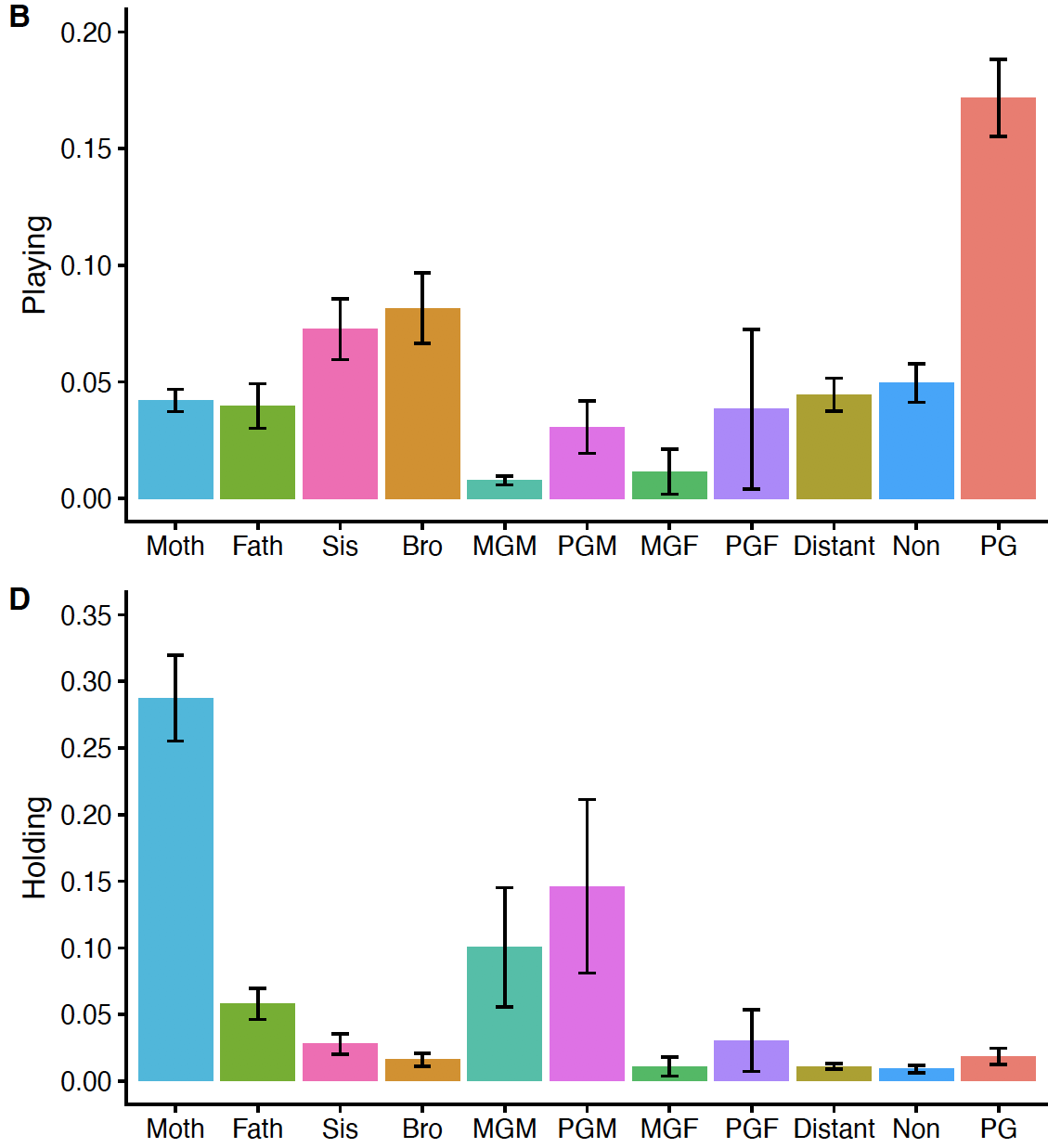Page, A. E. et al. (2021) Children are important too. Phil Trans. B.
Citation
Page, A. E., Emmott, E. H., Dyble, M., Smith, D., Chaudhary, N., Viguier, S., & Migliano, A. (2021) Children are important too: juvenile playgroups and maternal childcare in a foraging population, the Agta. Phil. Trans. R. Soc. B 376: 20200026.
Abstract
Non-maternal caregivers (allomothers) are hypothesised to lighten the mother’s workload, producing human’s specialised life history where multiple dependent offspring are produced over a relatively short time period. Here, using in-depth observational data on who for cares for 78 Agta children (aged 0-6 years, a foraging population in northern Philippines), we explore whether allomaternal childcare substitutes (and thus decreases) maternal childcare. Previous work has investigated the role of fathers, grandmothers and siblings as allomothers, frequently overlooking non-relatives, particularly juveniles providing ‘collective childcare’in playgroups. We found that mothers’ childcare was reduced by allomothers, but the substitutive effect varied depending on the source and type of care. Playgroups, by playing with children aged 2 and above, consistently predicted a decrease in maternal childcare. While few grandmothers were available, they were nonetheless negatively associated with maternal presence, and thus childcare, as they performed childcare activities, similar to mothers. These results underscore the importance of allomothering in reducing mothers’ childcare workload in the Agta. Mother’s flexibility in obtaining childcare from a range of available sources, including playgroups, may be the key to humans’ life history evolution, underling the necessity of a broad conceptualisation of social support in human childcare.
